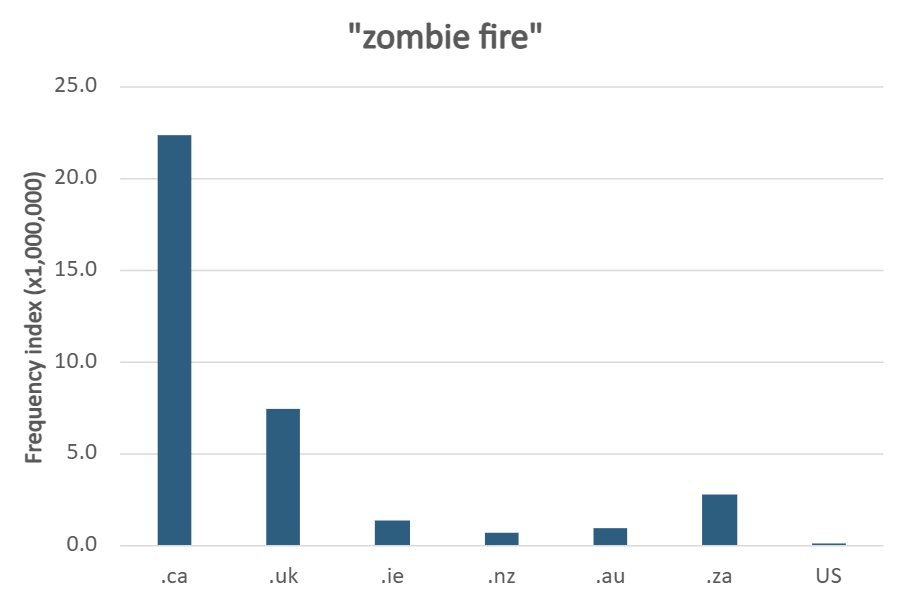Quick links
zombie fire
DCHP-3 (Apr 2025)
Spelling variants:'zombie fire'
n. — Climate change
a fire that reignites after smoldering underground over the winter.
Type: 5. Frequency — A zombie fire is a forest fire that reignites in the spring from underground hotspots; it is also known as a holdover fire or overwintering fire. As Chart 1 shows, zombie fire is most frequently used in Canada and three times more frequently than in the UK. In the US the term is much less frequently used by a factor of 1000 (see Chart 1). Accordingly, it is not yet listed in Merriam-Webster Unabridged (29 Apr. 2024).
The term is not listed in COD-2, CCD-2010, FWSCD-82, Gage-5 or ITP Nelson.
Additionally, the term is not listed in OED-3, EDD, W-2 or W-3.
The term is not listed in COD-2, CCD-2010, FWSCD-82, Gage-5 or ITP Nelson.
Additionally, the term is not listed in OED-3, EDD, W-2 or W-3.
Quotations
2021
THE bright red-and-orange flames engulfing forests are iconic, recognized, and an understood threat. New research, however, casts light on a new aspect of that threat: so-called zombie fires When an intense wildfire burns, it not only exists above ground where it is visible, but it also burns the earthy contents of the soil beneath the surface. Researchers from the Netherlands, Canada, and the United States are examining how underground fire can smoulder through the winter months, only to rise above the surface again come spring.
2022
The 2016 Fort McMurray fire in Alberta was considered a "zombie fire" and these forest fires have also been reported in British Columbia in past years.
2023
[In wildfires, a holdover fire, zombie fire or overwintering fire is a peat fire which persists from year to year.]
References
- Merriam-Webster Unabridged
- OED-3
- ITP Nelson
- Gage-5
- COD-2
- FWSCD-82
- W-2
- W-3
- CCD-2010
- EDD
Images
